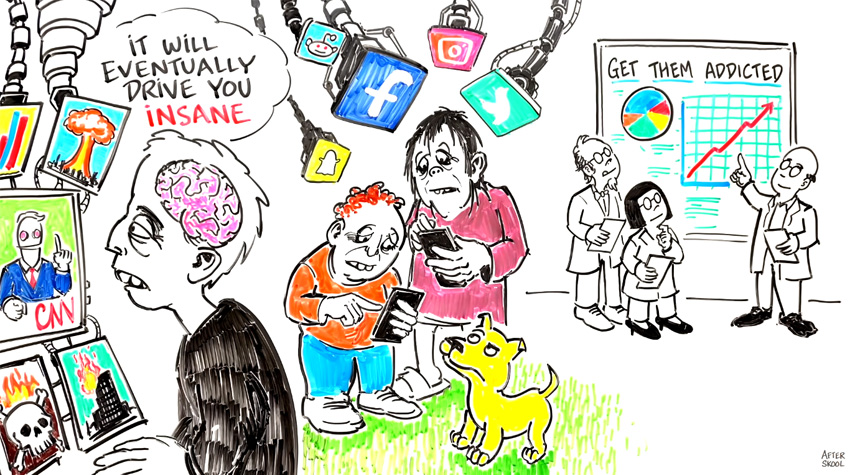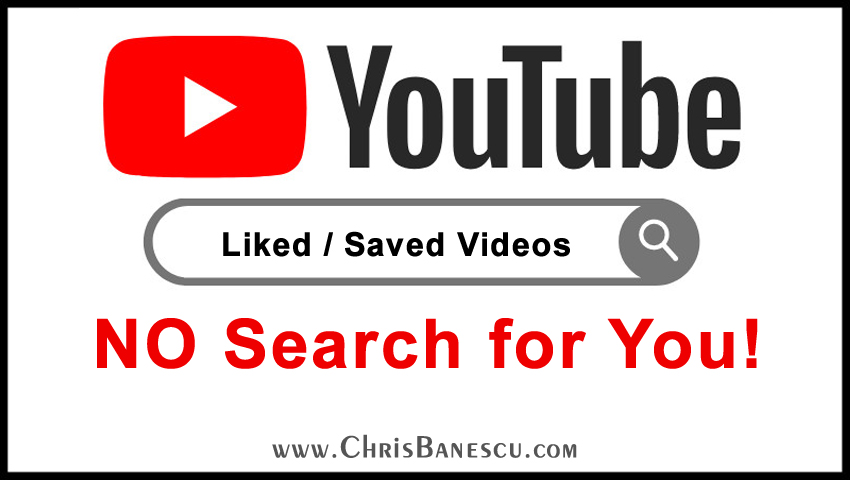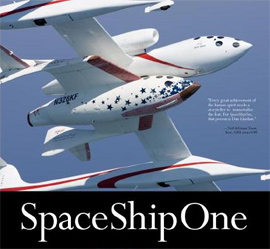 by Chris Banescu –
by Chris Banescu –
Our brains are not designed to be constantly flooded and overloaded with information. Our brains are not engineered for continual stimulation. Our brains are not meant to be constantly distracted. Unfortunately, modern technologies, applications, and platforms using globally connected networks instantly deliver to us nearly-infinite choices and opportunities to continually stimulate, entertain, distract, and addict us. [Read more…]
Technology
YouTube: No Search Functionality in Liked or Saved Videos
 by Chris Banescu –
by Chris Banescu –
YouTube, currently the largest video platform in the world, does not provide search functionality for your liked or saved videos. You’re allowed to search all YouTube videos for specific key words and terms, but you cannot search solely within your own lists of liked or saved videos. [Read more…]
Classic Shell Rescues Microsoft Windows Dreadful User Interface
 by Chris Banescu –
by Chris Banescu –
Classic Shell, a free desktop-enhancement and customizing software program, has rescued the dreadful new user interfaces in Microsoft Windows 8, 8.1, and 10. Created by a handful of developers, this program does what thousands of Microsoft programmers and clueless executives at a multi-hundred billion dollar corporation failed to do: deliver an intuitive and user-friendly software interface that meets their current customer’s expectations, rather than frustrate and confuse them!
Like tens of millions of other Windows XP users, back in 2014 I had to abandon Microsoft’s most stable and best designed operating system. Microsoft intentionally ended all support and updates for Windows XP on April 8, 2014, forcing its users to needlessly upgrade to the latest version of Windows. Since the bloated Windows 8 requires more system resources, much faster CPUs, and a lot more memory, Microsoft essentially strong-armed its customers into buying newer hardware [Read more…]
How to Develop a Disruptive Product
 by Eric Markowitz –
by Eric Markowitz –
One of the world’s oldest publishing companies brought in a ringer to revolutionize the way the company does business. The result? The first fully-interactive textbook.
Nature Publishing Group, which publishes several highly regarded scientific journals and textbooks, was founded in England in 1869, eight years before electric lights illuminated the streets of London. Now, 140 years later, with the help of Harvard Classics scholar Vikram Savkar, the company is beginning to disrupt the traditional textbook model that it helped to create.
This month at California State University, the company released Principles of Biology, an interactive, constantly updating biology textbook that retails for less than $50. Like most digital textbooks, the software is accessible on laptops and tablets, but unlike most digital textbooks, it’s not just a scan of a .pdf. The company calls it a “digital reinvention of the textbook,” meaning that students can interact with the material; they can literally match amino acids and corresponding DNA with their fingers. Inc.com’s Eric Markowitz spoke with Vikram Savkar about what it takes to create a culture of innovation in an old-school company. [Read more…]
What I Learned About Natural Gas from Boone Pickens

Last week I interviewed the Texas energy baron T. Boone Pickens four consecutive nights in front of a live audience. Pickens would talk for 40 minutes and then I would interview him for 50 minutes. (Full disclosure: I was paid a fee to do this, not from Pickens but from the event’s owner.)
The Pickens presentations had an interesting underlying tension: Texas billionaire, oilman and Republican trying to convince earnest San Francisco Bay Area liberals about the virtues of natural gas. How did Pickens do in front of liberal, vaguely hostile audiences? Surprisingly well. He made his case with numbers.
Here is what Pickens said:
– Global demand for oil is 86-88 million barrels per day. It will be 90 million by the end of the year, due to global growth. [Read more…]
Information Overload? Relax
The Wall Street Journal | by L. Gordon Crovitz | July 6, 2009
Just in time for summer, Crown Imports has brought back a popular television advertisement for its Corona beer that first aired in 1998. The new one shows a man at the beach skipping rocks into the sea. He decides to do the same with his BlackBerry — a beeper in the earlier version — when it interrupts his relaxation by ringing and vibrating.
The ad addresses one of the key causes of anxiety in the information age: What does it mean that for the first time, information is no longer scarce? We have fast and easy access to the communications and the facts we need, through email, the Web, Facebook, Twitter, text messages and other tools. So now we have the problem of too much supply. How can we escape useless information, unneeded emails and unwanted communications? [Read more…]
The Nanny State in Space

No sooner had SpaceShipOne safely landed in the Mojave Desert, making history as the first privately-funded manned space vehicle, than government officials rekindled their desire to regulate this nascent private industry. Such concern for the safety of future space travelers is commendable but somewhat disingenuous, given Congress’ rather poor record of oversight in maintaining the safety of NASA’s Space Shuttle program.
On Monday, October 4th, 2004, piloted by a civilian, SpaceShipOne reached space for the second time in two weeks. As reward for such a remarkable feat Mojave Aerospace Ventures, a private company headed by aeronautic legend Burt Rutan and funded by billionaire Paul Allen, will receive the $10 million Ansari X-Prize.
The revolutionary SpaceShipOne project was started by Burt Rutan partially in response to the challenge setup by the X-Prize. The prize was created to reward the first privately funded team that sent a three-person spacecraft into space on two different flights within a two-week period. With approximately $30 million in funds Rutan and his group were able to achieve this amazing goal in a relatively short amount of time and claim the award. [Read more…]
